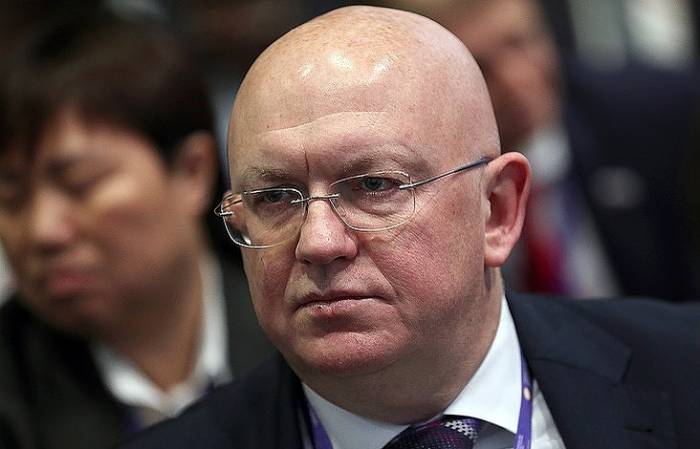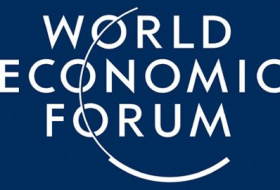Russia has nothing to do with the poisoning of former military intelligence (GRU) Colonel Sergei Skripal and his daughter and is ready to carry out a joint investigation into the incident with the United Kingdom, Russia’s Permanent Representative to the United Nations Vasily Nebenzya said on Wednesday, TASS reported.
"Russia is not involved in this this incident. We think London’s ultimatums to be void. We expect the United Kingdom to act in strict compliance with the Chemical Weapons Convention and other international acts, including the European Convention on Mutual Assistance in Criminal Matters, and to provide for a joint investigation samples of the substance the British investigators are citing, as long as they claim it is of the Russian origin," he said at a United Nations Security Council meeting.
"This is not an optional but a binding provision of the convention," Nebenzya stressed. "We are ready for such an investigation. We have noting to be afraid of and nothing to hide."
He demanded the British side provide "material evidence" of the Russian trace in this crime.
According to the Russian diplomat, unlike other countries, he opted not to name citing the assumption of innocence, Russia benefits nothing from such incident ahead of the presidential elections and the FIFA World Cup.
He noted that Skripal, who had served his espionage sentence and had been pardoned, "posed no threat" to Russia. "On the other hand, he is good for the role of a scapegoat to justify any incredible lies, dirt and mud-sliding in respect of Russia," Nebenzya said, adding that hyping the Skripal case, the British authorities "are deliberately indulging in Russia-bashing, shunning no methods."
Russia has never developed Novichok projects
"No research and development projects code named Novichok have ever been carried out in Russia," he told a United Security Council meeting. He recalled that Russia had stopped all chemical weapons program as far back as 1992 and had destroyed all of its chemical arsenals by 2017, which fact had been attested by the Organization for the Prohibition of Chemical Weapons (OPCW).
According to the Russian diplomat, in the mid-1990s intelligence services of some Western countries, including the United Kingdom and the United States, took a number of specialists and "certain documentation" from Russia to continue development of nerve agents. "Results reached by these countries in the area of new toxic agents that, due to some unknown reasons, are generally referred to in the West as Novichok, can be seen in more than 200 open sources in NATO countries," Nebenzya noted, adding that the Russian delegation could provide references to these documents.
The Russian diplomat drew attention to the fact that the identification of the toxic agent allegedly used to poison Skripal had been carried out at the UK Ministry of Defense's Defense Science and Technology Laboratory in Porton Down, which had conducted research and production of chemical weapons, including agents of that type. In his words, this agent most probably originates from "countries, which have been extensively working on such substances since the late 1990s, including the United Kingdom."
A press statement on the incident
Russia has called on the United Nations Security Council to pass a press statement on the incident with the poisoning of Sergei Skripal and his daughter.The text stresses the necessity to use provisions of the Chemical Weapons Convention in the investigation of this case, Nebenzya told a UN Security Council meeting on Wednesday.
"We want to circulate a draft press statement that sums up our position, with a focus on the necessity to use mechanisms of article 9 of the Chemical Weapons Convention. We hope all members of the UN Security Council will support it," he said.
In his speech at the meeting, the Russian ambassador drew attention to the lame argument of the British side, saying that its threats to Russia "cannot be commented on in diplomatic terms."
He said the Skripal incident fell within the scope of the Organization for the Prohibition of Chemical Weapons (OPCW) whereas London was dragging it into the United Nations Security Council as it understood that its conclusions would not be convincing for OPCW experts.
He stressed that Russia would let no one to speak with it "in the language of ultimatums".
Accusations
UK Prime Minister Theresa May on March 14 accused Russia of "an unlawful use of force" against her country following an incident involving former GRU military intelligence Colonel Sergei Skripal and his daughter Yulia. She said that 23 Russian diplomats would be expelled from the country within one week and that British officials would be absent from the FIFA World Cup finals.
May said the invitation to Russian Foreign Minister Sergei Lavrov to pay a reciprocal visit to the United Kingdom had been revoked and all planned high-level bilateral contacts had been suspended. Nevertheless, she added that it was not in British interest to break off all dialogue between the UK and Russia.
Along with this, May claimed that Moscow might have lost control of the reserves of the nerve agent that had been used for an attack against the Skripals. She said they had been poisoned with a nerve agent of the Novichok group of chemicals, developed in the Soviet Union.
In the meantime, Lavrov said Russia had nothing to do with the poisoning of Skripal and his daughter and that London was trying to mislead the world community. Moscow urged London for related evidence and for providing them in keeping with the official procedures.
On March 4, Sergei Skripal and his daughter Yulia were found unconscious on a bench near the Maltings shopping center in Salisbury after being exposed to a nerve agent. Both are in hospital in critical condition.
In 2004, Russia’s Federal Security Service (FSB) arrested Skripal and later on, he was sentenced to 13 years in prison for high treason. In 2010, the former colonel was handed over to the US as part of a swap involving espionage suspects. Later in the same year, Skripal arrived in the UK and settled there.
More about: Russia















































